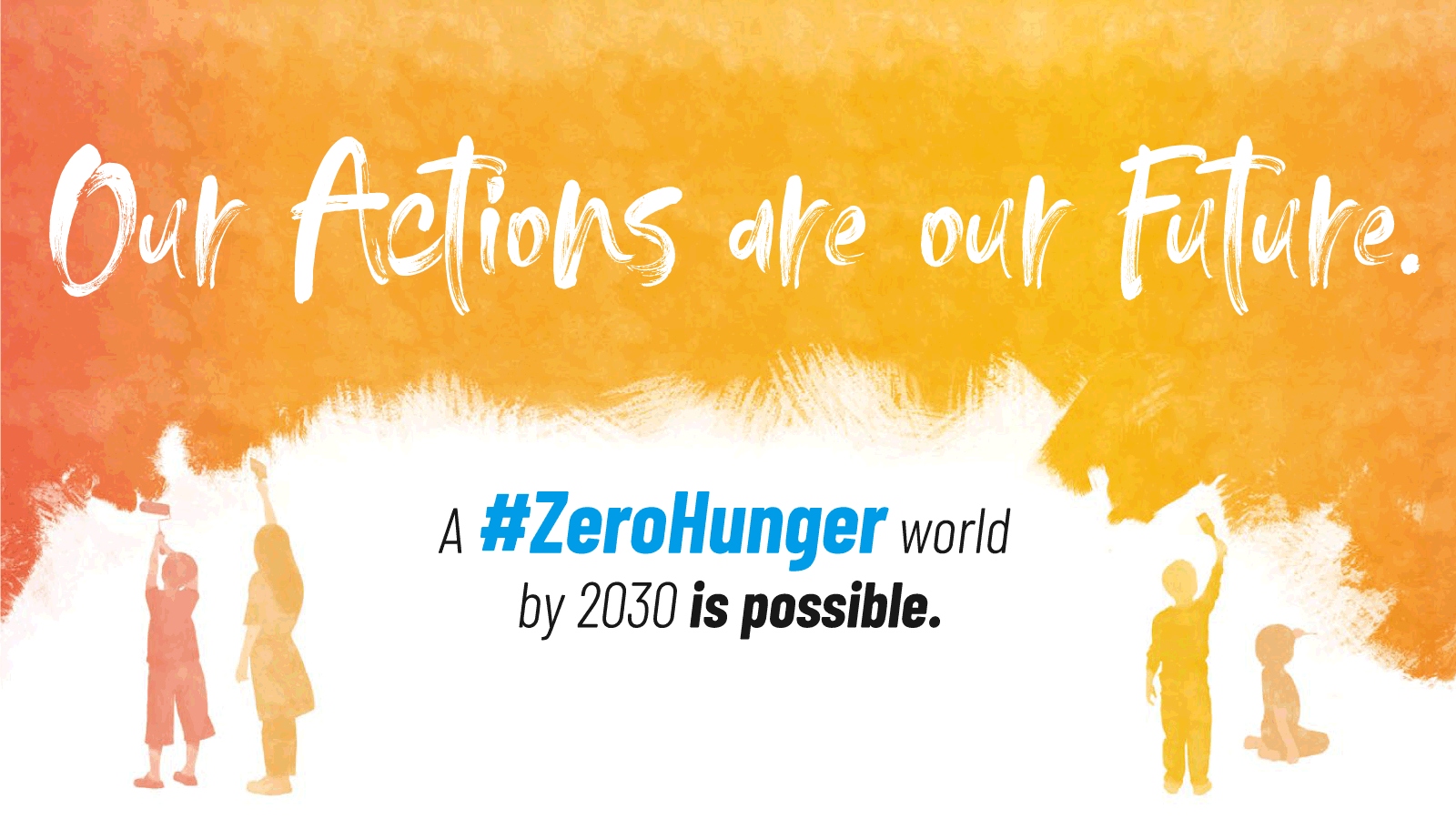Every Day is World Food Day at JCVI

World Food Day is a global initiative of the Food and Agriculture Organization (FAO) of the United Nations to ensure that people have access to enough high-quality food to lead active and healthy lives. After a period of decline, world hunger is on the rise again. Today, over 820 million people are suffering chronic undernourishment, according to the latest FAO 2018 State of Food Security and Nutrition in the World report. At JCVI we have several programs aimed at tackling world hunger.
One of the goals of the “Zero Hunger” initiative is for smallholder farmers to adopt new, sustainable agricultural methods to increase productivity and income. Ensuring resilience of rural communities requires an approach that is mindful of the environment, that leverages the power of technological innovation and creates stable and rewarding employment opportunities.
The J. Craig Venter Institute continues a lengthy history of helping to realize these impactful goals through programs dedicated to synthetic biology approaches as a transformational advance in our ability to design and engineer novel bacteria with extraordinary properties to serve human needs. The Basic Research to Enable Agriculture Development (BREAD) program of the Bill & Melinda Gates Foundation received $20 million in funding from the National Science Foundation (NSF) to support 15 projects in 2010.
“BREAD: Toward Development of a Vaccine for Contagious Bovine Pleuropneumonia (CBPP)”, which began in 2011, is a project led by JCVI’s Synthetic Biology Associate Professor Sanjay Vashee, PhD in collaboration with Dr. Carole Lartigue of INRA, France, former JCVI researcher and key member of the team who constructed the first synthetic bacterial cell and Dr. Joerg Jores of the University of Bern, Switzerland. CBPP is a serious bacterial disease in cattle and an economically very important livestock disease within Africa that limits the availability of protein sources for nutrition and restricts trade. The team continues to work on new technologies to help out those looking for an affective and cheap vaccine to support smallholder farms all over the world. Read more.
“Developing Genetic Tools to Manipulate African Swine Fever Virus and Generate Attenuated Strains” is another project led by Sanjay Vashee, PhD with collaboration with Dr. Lucilla Steinaa of the International Livestock Research Institute, Kenya, and Dr. Walter Fuchs of the Freidrich Loeffler Institute, Germany. This project is targeted at combating the devastating hemorrhagic disease of pigs with mortality rates up to 100% in infected pig herds. It is prevalent in many sub-Saharan African countries, causing major economic losses, and threatening food security. Due to this sustained occurrence and the ever-increasing global traffic of people and goods, ASF poses an added global threat. Read more.
In addition to Dr. Vashee’s work, John Glass, PhD, Professor and head of the JCVI Synthetic Biology and Bioenergy Group is leading a USDA funded project, in collaboration with University of Connecticut, to produce an improved vaccine against the poultry bacterial pathogen, Mycoplasma gallisepticum. This disease affects chicken and turkey flocks worldwide, causing significant economic loses in addition to songbirds, making it difficult to eradicate. While there are existing vaccines, they are not as effective on all strains.
JCVI’s mission is to accelerate the pace of scientific discovery and to pursue creative new ideas that leverage the power of genomics. We do this through fast-paced, innovative research—the outcomes of which are not always easy to predict. JCVI depends on private funds to unleash scientists’ most groundbreaking ideas, moving them from mere plans to impactful programs that can later be supported by traditional funding sources. To donate to the Innovation Fund and help JCVI reach its goals, read more.